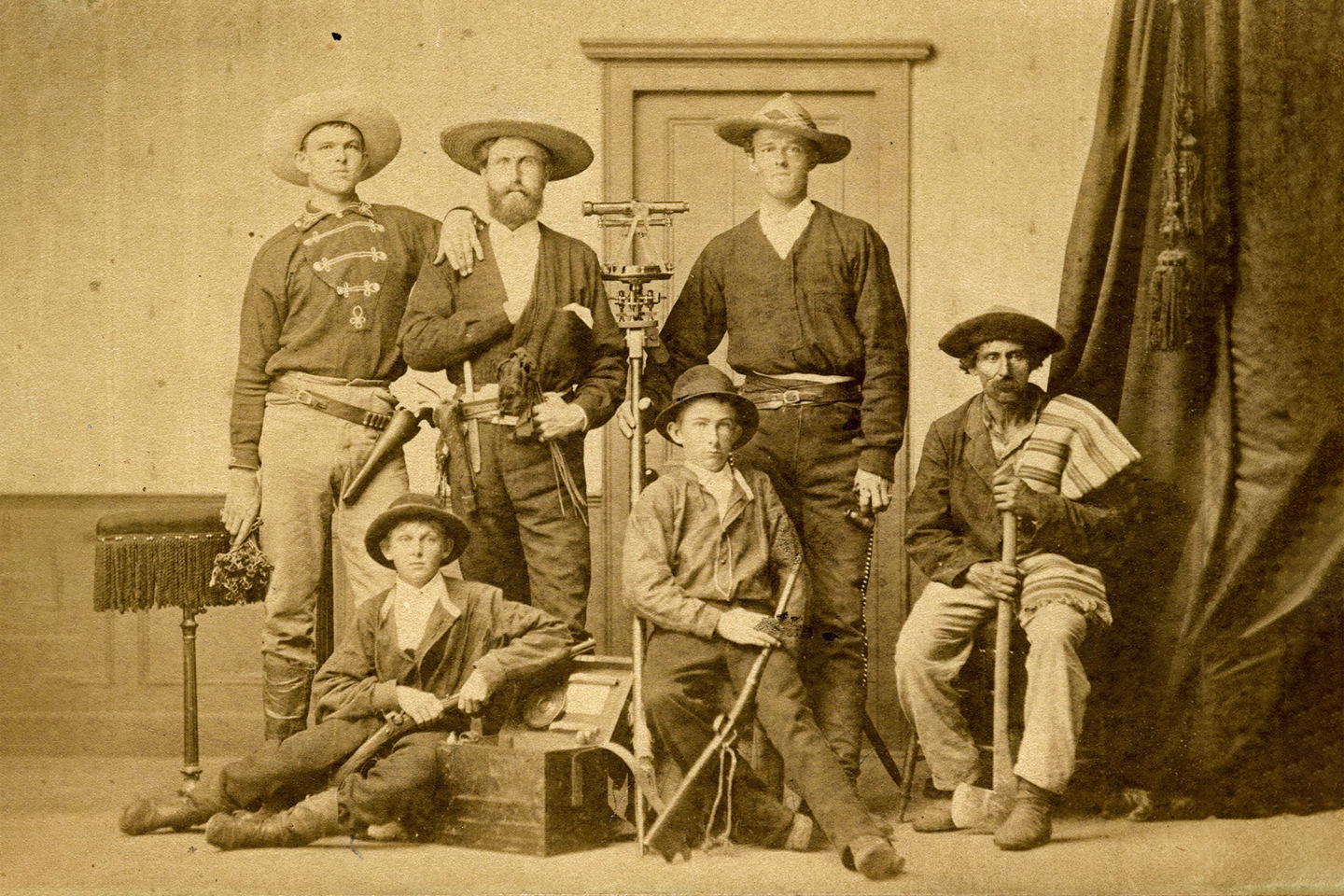Colonel Daniel Montague Arrives in Austin by Way of Bird's Fort
Daily Bulletin (Austin, TX), Vol. 1, No. 35, Ed. 1, January 11, 1842

Col. Montague, the County Surveyor of Fannin, accompanied by a friend, arrived two or three days since, from Warren, the county seat of that county. They took a course through the woods directed by a compass, and find this place to be a little west of south of Fannin. The gentlemen came by the way of Bird's Fort, on the west fork of the Trinity, which is due north from this place, and about thirty miles from the direct route from Warren. They found all at the Fort, about thirty in number, in good health and condition. They had lost one man, of the name of Rattin [sic], a few days before. He, with two others, had gone out on some business, but had become careless, and were cutting down a tree for a bear, entirely off their guard, when they were attacked by some Indians and this one killed.
The distance from Warren to this place is somewhere about 240 miles. These gentlemen were eight days in coming, riding leisurely. Warren, it will be recollected, is in the north of Fannin. There is a proposition now before Congress to establish a mail route from Austin to Fannin, by this direct course, and if authorized, the contract will be taken at the customary rate.
There is authentic information, that 600 families for the colony authorized by the last session of Congress to be settled by Peters, Browning and others, have already started. They have purchased two steamboats, with which they will pass up Red River. 200 more families are to follow. The section of country to be colonized, stretches from Red River, west of the line of Fannin county on the north, 97 miles down towards the upper line of Milam County. The tract is 22 miles wide, and is divided into sections of 640 acres, for families, and 320 for single men. The two gentlemen we have named, passed through the tract, and describe it as being a great part prairie, generally well watered, good soil and well timbered on the streams, which will admit of extensive settlements. They say that the route for travel is a good one, and that very little improvement, at a few places, would fit it for wagons. They think the colony will fill up immediately, and if it does, it will certainly be a great and immediate benefit to the country. Any one looking at the map of Texas, will at once perceive the extent of country that this long settlement will protect. By regulation of the company, settlers are to draw lots for their land, but are always to remain in close neighborhoods for mutual protection.
It will be perceived, by a glance at the map that a great part, if not all of the Red River country belongs to the western section of the Republic; that this colony is all in the west; that the tendency of all the late settlements from that country is still further to the west, and it follows, necessarily, that in all questions of sectional interest between the two great divisions of the country, this large and rapidly increasing body of people will vote with the west. Whenever the site of the Seat of Government is referred to the people, as it will have to be before permanent location, these people, being themselves in the west, as near to the capital as they would be, wherever it would be placed, perhaps nearer, would certainly vote for its continuance in Austin. This, added to the undivided vote of the west, would overbalance all the other vote given, and Austin will continue, as it should, to be the capital of the country.
We are well aware that the location, when made, was productive of great inconvenience, more however to its residents than any body else,— that has been endured, and so lessened by the natural operation of settlement and business, as not now to merit serious consideration. Unquestionably the place is central between the North and South of the country whether boundary or population be considered. Between East and West it is also about central, and although the population of the East now overbalances that of the West, from considerations of safety and momentary convenience, assuredly it will not be so a great length of time. The temporary convenience which induces new emigrants to stop soon after crossing the line will disappear with the increase of their means after the second crop, and the desire for richer lands and purer streams, clearer atmosphere and more salubrious climate, will draw them to the fair lands to the West. That country offers to the planter and the stock-raiser inducements, health included, with which the great body of the East, as it is ordinarily defined, cannot for an instant compete, and the result is inevitable in the migration to the rich soil, the unrivalled pasturage, and the pure water for which Western Texas has probably no rival in the world. This ceaseless clamor from the East for the removal of the seat of Government, is then one which must necessarily be disregarded, and whenever the question comes before its proper arbiters, it will be settled in a manner to disappoint very much the impression of that people of their numeral strength.
Those who imagine that Houston will ever again be the seat of Government, have a strength of fancy which probably affords them some pleasure, as it does others much amusement. Really if the Government had to move in that direction, Harrisburgh presents superior inducements for its occupancy, and would receive more general favor. It seems to us ill-judged for them to desire its removal. Almost its entire business is now done through Houston, and if the Government were to be removed, Austin would be deserted—the settlements for a long way below would break up, and Houston would lose the profit derived from supplying it, and then would fail to get that possession of the Government which she so much covets. Should the Government remain here, the country about it will fill up;— wheat, a most desirable staple for the country, will be raised in this region, and Texas will be supplied with an article of her own production for which she now exports a large amount of money.

